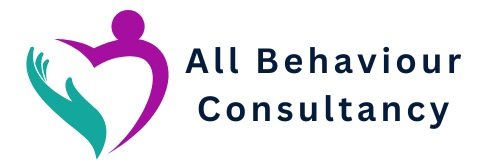How Does ABA Improve Behaviour?
ABA therapy is the most widely researched intervention for autism. With 40 years of scientific research on Applied Behaviour Analysis, it’s a structured, scientific approach that improves social skills, communication, self-care and learning skills.
If you’re a parent of a child with learning disabilities or autism, you may be struggling to manage your child’s behaviour at home.
Or perhaps you’re going through the process of diagnosis, and feeling overwhelmed and stressed with the potential challenges you may be facing.
One of them is deciding how to best support your child and this is how you most likely came across this blog.
You have come to the right place due to our highly experienced team of Behaviour Specialists, led by a highly experienced Board-Certified Behaviour Analyst (BCBA).
What does an early ABA programme for my child look like?
An early ABA programme for children with autism can address every type of behaviour relevant to each individual child.
A modern ABA programme is very different from years ago, where it’s much more about being fun, flexible and practical for the child.
We use Positive Behaviour Support to reduce problematic behaviours that can occur with Autism Spectrum Disorder. Behaviour analysts look at the causes and the consequences of behaviour. We develop interventions based on this information.
First of all, you and your child will meet a Board-Certified Behaviour Analyst who will gather as much information as possible about your child (make sure you are working with a BACB-credited ABA Specialist). This will be done through an interview and a formal assessment such as The Verbal Behavior Milestones Assessment and Placement Program (VB-MAPP) which assesses the language, learning and social skills of your child.
This assessment will provide crucial information about your child’s current level of skills, areas of strength as well as highlighting areas where your child needs support. Based on the assessment, targets specific to your child’s needs will be set. An early learning program typically focuses on supporting the development of language and communication skills. It may consist of teaching your child to appropriately request desired objects or activities – Mands; to label objects, people or events – Tacts; to imitate speech sounds and words – Echoic; or to answer questions – Intraverbals.
For non-verbal Autistic children or children with limited language skills, it may mean an introduction of alternative communication tools such as the Picture Exchange Communication System (PECS) or Makaton. Another area that an early learning intervention programme focuses on is listening and responding to enable and teach the child to follow instructions.
Also, programmes like receptive objects or receptive colours will teach the child to discriminate between different stimuli upon an instruction. Furthermore, social skills, independent play skills and self-help skills relevant to the child’s age and needs will be taught to help the child to become as independent as possible and to teach the child to navigate social situations.
In addition to this, any behaviour that is identified as challenging will be addressed. You might think that all that sounds important but not much fun!
This is where skilled ABA therapists come in.
They deliver teaching sessions in a carefully planned and structured way whilst ensuring that your child is learning at the same time as having fun.
We tailor our expertise to ensure there are plenty of things your child likes and incorporated into the teaching.
Does your child like sensory play? Let’s teach him whilst playing with shaving foam. Or perhaps animals are his passion, so we bring in a toy farm. There is so much we can teach during play.
We use Natural Environment Teaching to teach children in the ‘’real world’’ as much as possible because it is fun, because it helps to generalise skills and because it is an evidence-based approach.
We also recognise the importance of structured table learning because our learners do go to schools and they do need to learn how to sit down and work at the table. We have heaps of tools to help us to make learning fun and successful, and lots of happy clients which makes our work that much more rewarding.
Please get in contact now if you would like a free initial phone consultation: info@allbehaviourconsultancy.com

